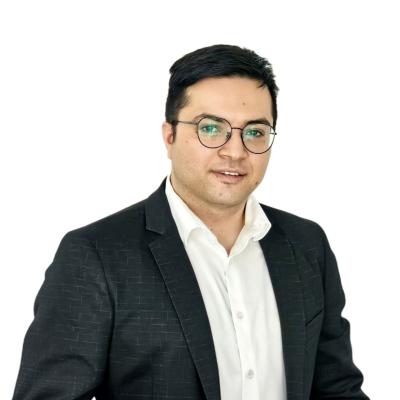Dr. Hamzehpoor's work explores materials chemistry and how we can create materials capable of self-assembling into complex functional structures.

Research topic
Research Description
In a landmark statement back in 2009, Jean-Marie Lehn, recipient of the 1987 Nobel Prize in Chemistry, laid out the future of materials chemistry with these words: "From divided to condensed and on to organized, living, and thinking matter, the path is toward an increase in complexity through self-organization." This vision has set the stage for centuries of scientific efforts aimed at creating materials capable of self-assembling into complex, functional structures. These advancements hold promise for transformative applications across electronics, photonics, environmental sustainability, and beyond.
My research within the MacLachlan group is focused on innovative approaches through which we can construct large assemblies of organic molecules a.k.a. organic macromolecules (for example macrocycles and cages). Currently, I am working on developing single molecular precursors designed to controllably self-assemble into porous macrocycles. This strategy diverges from conventional methods that typically employ multicomponent assemblies of several different monomers.
We investigate how the precursor's optoelectronic properties influence that of the resulting macrocycle, as well as the dimensions of their formed pores—crucial for guest molecule incorporation. We are investigating the host-guest interactions of these macrocycles with critical analytes, such as heavy metals and alkali metals for battery applications and contaminant removal. This research not only broadens the foundational knowledge of materials chemistry but also paves the way for its application in fields like environmental remediation, energy storage, and next-generation technologies in health care, security, and information technology.
Why did you decide to pursue a postdoctoral fellowship at UBC? Did you consider other opportunities?
I chose to pursue my postdoctoral fellowship exclusively with Dr. Mark MacLachlan's research group at UBC, drawn by the university's exceptional research facilities and its vibrant community of material chemists, physicists, and spectroscopists. UBC's reputation as a leading institution for materials chemistry research, particularly in areas aligned with my interests, made it my top choice for advancing my studies.
What specifically attracted you to your research group?
I was particularly attracted to Dr. MacLachlan's lab by our shared interest in crafting molecules with intricate and functional designs. In our lab, the journey doesn't end with designing and synthesizing these exceptional molecules; we also explore their real-world applications. This dual focus on discovery and practical application presents a unique challenge, one that I find both stimulating and achievable within this research setting.
What advice do you have for new postdoctoral fellows?
My Ph.D. supervisor once shared this wisdom: "Remember, we're here to learn how to ride a bicycle, not to invent one." The idea is that by emphasizing learning, productivity naturally follows.
What do you like to do for fun?
I enjoy reading about the history of science, crafting and tasting artisan coffee, and practicing cyanotype (an early photographic printing process).
What is the most enjoyable aspect of your postdoctoral fellowship?
The most enjoyable aspects of my postdoctoral fellowship are without a doubt, collaborating with a highly supportive research team and having the creative freedom to design and synthesize innovative molecules.
What are the biggest challenges you have faced, or anticipate facing, in your career?
The main challenge I have faced is maintaining a healthy work-life balance and finding the right equilibrium between professional ambitions and personal/family well-being.
What in your life or career has prepared you for this position?
My preparation for this position comes from the influence of my parents and the inspiring educators in my life, who all pursued their passions and dreams with relentless dedication which have instilled in me a strong work ethic and a commitment to my goals.
What does receiving this award mean for your career?
Receiving this award offers me financial stability which is an invaluable opportunity to focus on my research. Through this honorable recognition, I aim to share my academic passions with the broader scientific community and use this opportunity as a beacon of inspiration for all first-generation graduate students, showcasing firsthand what can be achieved when we follow our passions and dreams.
What do you think the next step in your career will be?
I'm currently on the brink of establishing my own research group at a Canadian institution!